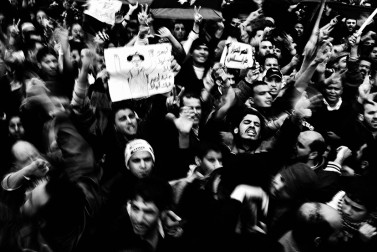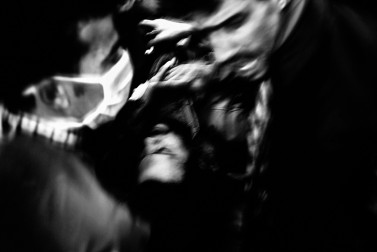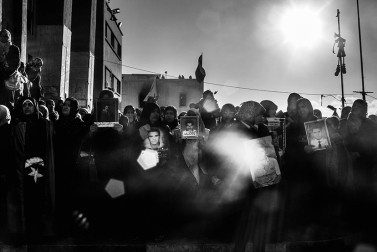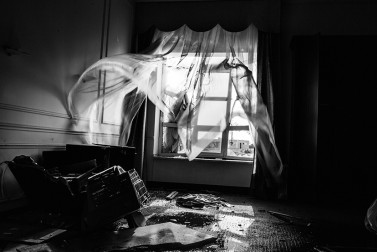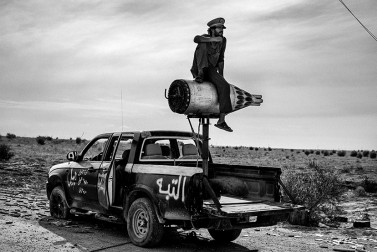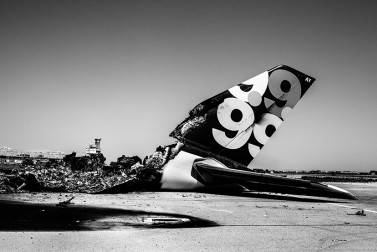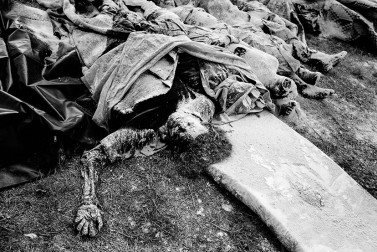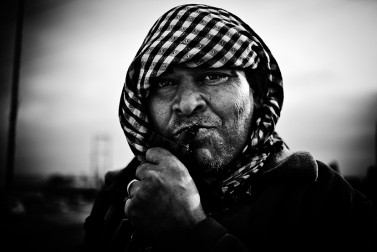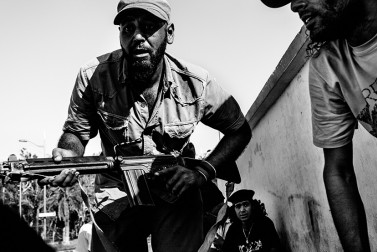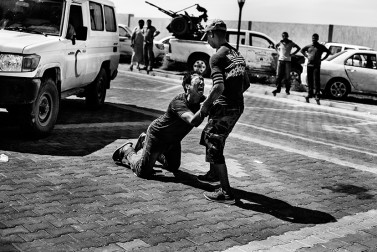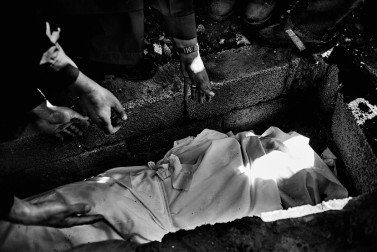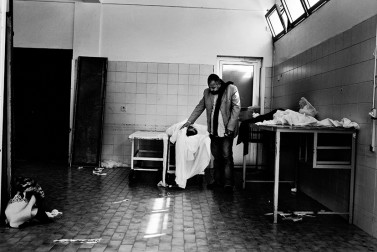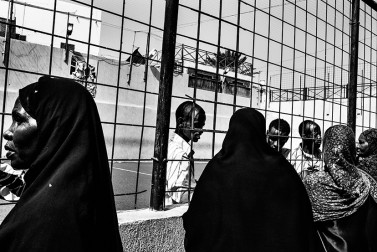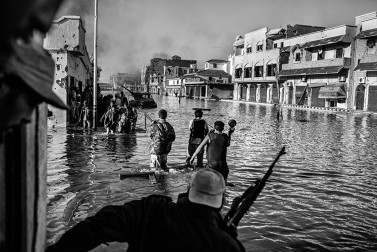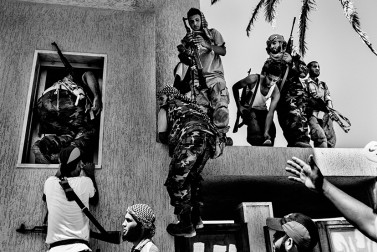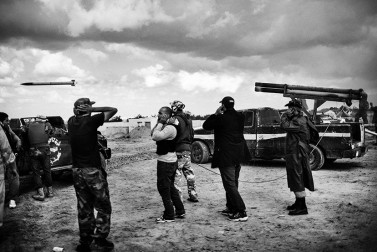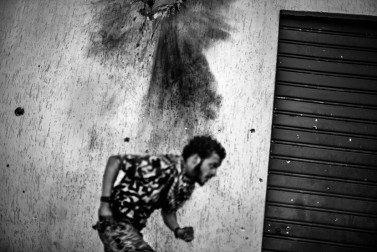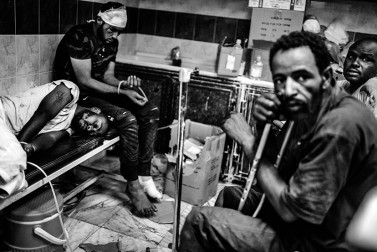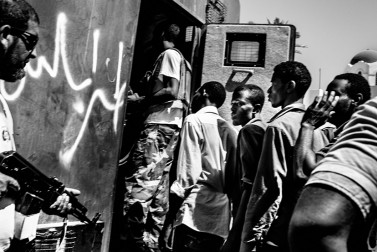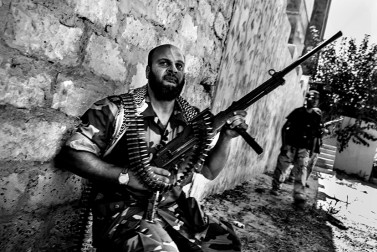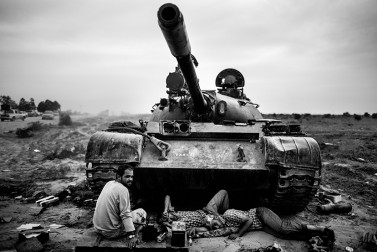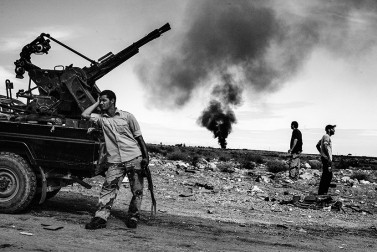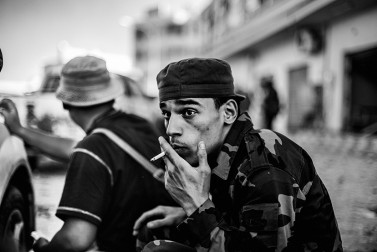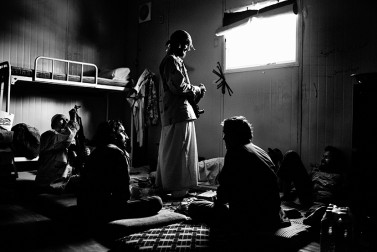The Libyan revolution began on February 2011, in the wake of the riots that changed the Arab world. In contrast with what happened in Tunisia and in Egypt, in a few weeks the Libyan Revolution became a civil war, a conflict that claimed more than 20,000 dead and 50,000 wounded. Libya, one of the richest countries in oil and natural gas, attracted the interests of the Western powers which decided to participate actively in the conflict aiming to oust the dictator and to rearrange the politics of oil in Europe and in the whole world. NATO, led by France, changed the fortunes of the conflict, increasing the possibility of victory for the insurgents.
Since the conflict began I’ve been several times in Libya: the first time about a year ago, in February, when I covered the beginning of the fighting before the NATO action. During the first trip, I documented Cireanaica freed from the forces of Gaddafi and the formation of an army of revolutionaries ,who, until then, had never been active in war. The revolution was made by the
Shababs, young people with no military training, unaccustomed to war, who decided to take up their kalashnikovs and to go fighting against the dictator. In the following months, I traveled through the mountains of Nalut to the Tunisian border, in order to document the fall of Tripoli and of Gaddafi’s compound, Bab Al-Azizia. In October I went to Sirte and Misurata: there, I covered the last battle until the capture and death of the Rais. A month lived into the war gave me the opportunity to enter the dynamics of the conflict and to catch its true complexity. After the first few days, my interest shifted from the battle to those who were living the conflict. I tried to focus on people, and how they live the war, and I run into the brutality of the conflict through human emotions: the extreme pain for the loss of a friend, the courage and pride in fighting for freedom and the happiness and the hope of rebirth.
What I have felt mostly throughout the whole period, was the extreme need for change and freedom of people who had been subjugated by a dictator for decades. The instinct, the search for freedom, led the young revolutionaries, the Shababs, to risk their lives in hope for a different future.
